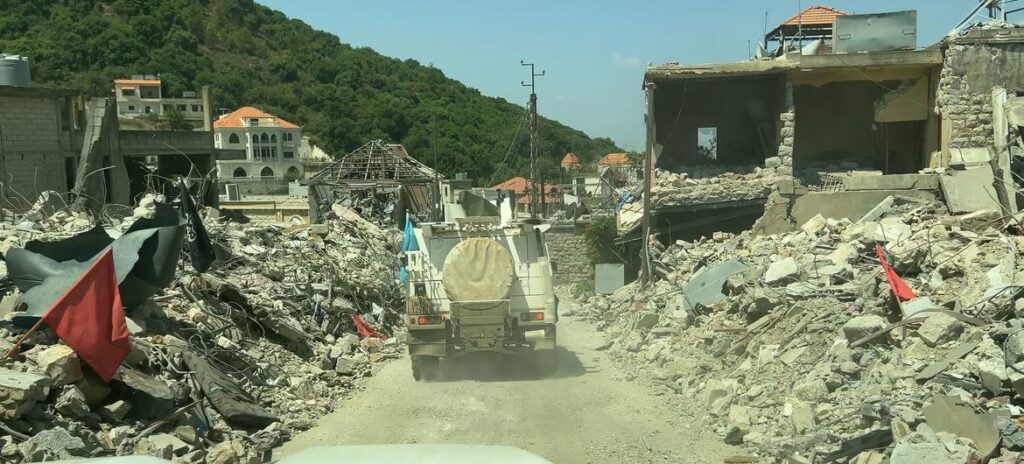
Dr Abdinasir Abubakar explained how the UN agency has supported the Lebanese Ministry of Health, including in response to a spate of electronic device explosions this week.
Hundreds of pagers exploded simultaneously across the country on Tuesday, while walkie-talkies and even some solar panels exploded the next day. The attacks reportedly targeted the militant group Hezbollah, killing civilians, including children.
Region ‘on the brink of catastrophe’
At the regular briefing for correspondents in New York, spokesman Stéphane Dujarric called for “maximum restraint” by all parties to the conflict.
“We are very concerned about the increased escalation “Across the Blue Line, including the deadly attack we saw today in Beirut,” he added.
“We also urge the parties to immediately return to the cessation of hostilities…The region is on the brink of catastrophe.”
An ‘unprecedented’ crisis
Dr. Abukakar told UN News that the Ministry of Health had registered 37 deaths and more than 3,000 injuries on Thursday evening.
WHO helps Lebanese hospitals prepare for mass casualty events amid unrest in the region.
He described the past few days as “unprecedented” for both the country and the health system, “because on September 17, from almost 3:30 to 4:00, almost 3,000 injured patients were brought to hospitals at one time, and the hospitals were basically not prepared to handle that number of cases at the same time.”
Support and supplies
After the explosions, the WHO has supported the Ministry of Health “to coordinate well with the hospitals so that at least there is a good referral system,” he said.
“We work with the emergency departments to ensure that there is good coordination within the hospitals so that patients can be referred from one hospital to another.”
The teams also ensured the distribution of supplies that hospitals needed to treat the cases, and supported the Lebanese Red Cross with the appropriate supplies and test kits for blood transfusions.
WHO also provided other support, including mental health support for health workers, patients and families, and ensured that essential health services could continue.
Crisis upon crisis
The crisis is the latest challenge for Lebanon, where the health system has been severely affected in recent years.
Dr. Abubkar said that first the COVID-19 pandemic, followed by the devastating explosion in August 2020 in the port of the capital Beirut. The explosion killed more than 200 people and caused millions in damage.
Lebanon is also in financial turmoil, he added, and is experiencing spillover effects from the war in Gaza that erupted last October following Hamas attacks on Israel. Many hospitals have been treating trauma-related cases due to cross-border violence.
“Before the recent event of September 17, there were nearly 2,700 injuries and approximately 550 deaths as a result of the conflict.“, he noted.
WHO is also expanding its activities in southern Lebanon, where mobile clinics run by partners are providing vaccination services, basic health care and nutritional support to people displaced by the fighting.
Preparing for mass casualty events
Dr Abubakar said WHO and the Lebanese Ministry of Health have invested heavily in hospital and healthcare preparedness, including advanced training in trauma management, which proved valuable after the wave of explosions earlier this week.
“We’ve proposed supplies. We’ve done some simulation exercises for this kind of mass casualty. I think some of those hospitals were actually prepared in some way to expect this kind of mass casualty,” he said.
He praised health authorities for their “tremendous effort” in coordination, which allowed hospitals that were overloaded or “saturated” to transfer patients to other locations.
“In total, more than 100 hospitals have admitted wounded patients,” he said. “And you can imagine now, in a country as small as Lebanon, which has five million people, if so many wounded people have to be admitted in a very short period of time, how the health system will feel.”
Support Lebanon now
When asked if he had any message, Dr Abubakar stressed the need to respect international humanitarian law and to protect health workers, civilians and health facilities.
He also urged more support for Lebanon, stressing the need for more resources to respond to the ongoing crisis “but also to the worst-case scenario”.
“I call on the international community to ensure that we have more resources available to support those who have been injured, affected and displaced in the current conflict,” he said.







